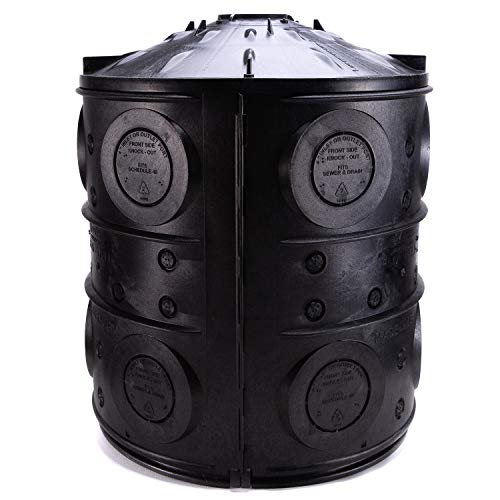Best Mulch For Water Drainage Of 2024: Completed List
Sonya Harris May 7, 2024 8:49 PM
What is the current state of the best mulch for water drainage in the market? As a result of the sheer number of options available, clients are likely to feel intimidated while trying to find an appropriate brand to shop for, There are simply too many choices, many of which are low-quality knock-offs, on the market.
In order to aid you in making an informed decision, we've put together a list of 15 different best mulch for water drainage product options that we've investigated and analyzed.

Overview
Wet spots in a garden are highly problematic, especially when implementing permaculture, because most plants want their roots to remain reasonably dry. You can't completely eliminate the problem of standing water by mulching, but you can improve soil drainage a little. If you have a lot of clay in your soil, you're more likely to have moist spots in your garden because of the soil.
In order to allow the water to soak into the ground, wet areas must be tilled or dug up rather than just mulched. You should then cover the area with a mulch that drains quickly and does not retain water, such as wood chips, ornamental pebbles, or plastic mulch. Adding to this, you should plant shallow-rooted plants in moist regions because they have a better chance of surviving there.
A plastic mulch is necessary if you have a moist area in your garden. My personal preference is 1.00 mil Embossed Plastic.
Prior to applying mulch to an area that is damp, you must first remove the compacted soil, which prevents water from draining. Water will be able to get into the soil much more easily if you dig it up or till it. In other words, it won't solve the problem because water will still collect, but it will do so deeper in the earth, where it will be better absorbed by plants.
It is important to cover the soil with a thick layer of mulch once it has been tilled. A good mulch to use is one that drains well, like wood chips. Planting plants with shallow roots in damp locations is also a smart idea, so that their roots don't become soggy. Mulching flowerbeds is an excellent idea, and you can learn more about it here: Best Mulch for Water Drainage.
- SCORE9.4
- BrandMosser Lee Company
- Prime
Last update on 2024-05-07 / Affiliate links / Images, Product Titles, and Product Highlights from Amazon Product Advertising API
What is mulch?
Mulch is any material that is applied over the soil to protect it and the plants in its vicinity. Chipped or shredded foliage, bark, or even cocoa beans or straw can be used to make mulch, but it can also be manufactured from synthetic materials like rubber or landscape fabric. Your landscaping will look better and streams will be cleaner if you use mulch. If you want to improve the water quality in our streams, rivers, and ocean, appropriate mulching can help.
Why does mulch matter?
Mulch offers numerous advantages that benefit your garden and your health, as well as the health of your soil. Mulch not only saves you time and effort in the garden, but it also helps to keep your plants healthy and happy during the hot summer months by retaining moisture.
-
Conserves Water – As a result, less water is needed to keep plants healthy and flourishing thanks to mulching.
-
Moderates Soil Temperature – Moderates A "thermal jacket" of mulch keeps soil cool on hot days and warm on cold nights, insulating the roots of plants from extreme temperature swings.
-
Improves Soil Quality and Reduces Erosion – Mulch enhances soil quality by improving water and air flow and aiding in the decomposition of nutrients. It also works as a protective covering to guard against soil erosion due to wind, rain, or irrigation.
-
Prevents Runoff Pollution – Mulch helps to hold rain and irrigation water on site, reducing pollution from runoff. This water instead evaporates or soaks into the ground.
The best mulch for your landscape
Perennial Beds or Foundation Plantings
Trees, shrubs, and perennials benefit from long-lasting mulches like bark, which slowly release nutrients over time. Bark mulch can also be used in situations where digging isn't necessary, such as pathways and foundation plantings.
Shaded Gardens
Mulching with shredded leaves is ideal for informal gardens, when the mulch's look is less of a consideration; they also attract earthworms, which helps to enhance soil quality.
Drought-Tolerant Gardens
A stone or gravel mulch can benefit drought-tolerant plants such as succulents and cactus. Mulch made of stone or gravel won't hold water, making it ideal for rain gardens and other places that need adequate drainage. It's vital to keep in mind that organic mulch may not be the greatest choice for use in close proximity to some types of plants in drought-tolerant environments. Root rot and mold can be detrimental to plants used to low rainfall settings if water is held for too long.
Wood Chip Mulch
Wood chips are one of the greatest mulches for damp locations because they drain quickly, but they also retain a fair amount of moisture. Mulch should only be used in locations where the soil has been dug up or tilled. Place a 2-6 inch layer of wood chip mulch around the plants, so that the mulch does not touch the plants. Alternatively, you can plant the plants directly in the mulch, which will elevate them above any puddles or standing water. If the mulch is thick enough, the water should be able to drain right through it. There is a recent article on my website about how to get rid of bugs in mulch if you have an issue with bugs in your mulch ( Fast & Easy ).
Decorative Pebbles Mulch
A layer of decorative pebbles can be used as a mulch in a wet region since they do not retain water, allowing water to flow right through the pebbles. In the absence of an organic mulch, pebbles pose a concern. The deeper the layer of stones, the lower the water level will be in the region that has been tilled or dug up. Plants with shallow roots can be cultivated directly in the stones; however, the top layer of the pebbles can always be mixed with compost.
If you remedy the drainage issue by digging or tilling deep enough, you can grow plants with shallow roots in moist regions.
Bark Mulches
Shredded bark mulches are commonly available in chunks or granules. When working into the soil, granules work better than pieces since they may go deeper into the clay. Bark mulches come in a wide range of hues and are more durable than wood chips in terms of color retention. It's also denser, so it's more wind-resistant.
Hulls/Shells
Mulches formed from plant hulls and shells can be found in a variety of forms. It is possible to generate long-lasting mulch out of the pecan and hazelnut shells by shredding them into little pieces and adding them to a compost pile.
Its delicate texture and neutral tint make it ideal for a variety of landscapes. During hot, humid weather, they can get slightly smelly due to their susceptibility to breeze.
Chocolate-colored cocoa bean hulls provide an appealing aroma. In order to keep the roots of the plants from becoming suffocated, this mulch must be agitated. Also, cocoa bean hulls are harmful to dogs, so if you have pets in the region, you may want to look for an alternative.
What do I need to know about applying mulch?
2 to 4 inches of mulch can be applied to a weed-free portion of the soil.
Maintain a distance of at least 1 to 2 inches between mulch and the stem or base of each plant in order to prevent the rot of the stem and trunk.
Build back up to the original level of mulch by replenishing decomposing mulch every year.
Use the compost calculator worksheet from the San Diego Sustainable Landscapes Program or this online calculator to figure out how much mulch you'll need.
A 2-cubic-foot bag of mulch typically covers eight square feet when applied in a 3-inch layer.
Where can I find mulch?
Mulch can be purchased for as little as $3 per bag at most home and garden centers that sell plants.
Ordering large volumes of mulch from local landscape supply firms is possible.
Some municipalities offer free mulch and compost, while private landscapers and arborists might also provide it.
It's all up to you! There are a number of ways to manufacture your own mulch, including gathering and recycling organic materials found in your own yard.
Remember: Mulch is critical! Stormwater pollution prevention and preserving the cleanliness of our rivers will benefit greatly from the mulch you choose today. Our landscape enhancement page has more information on how you may beautify your landscape at the same time as preventing runoff pollution.


























